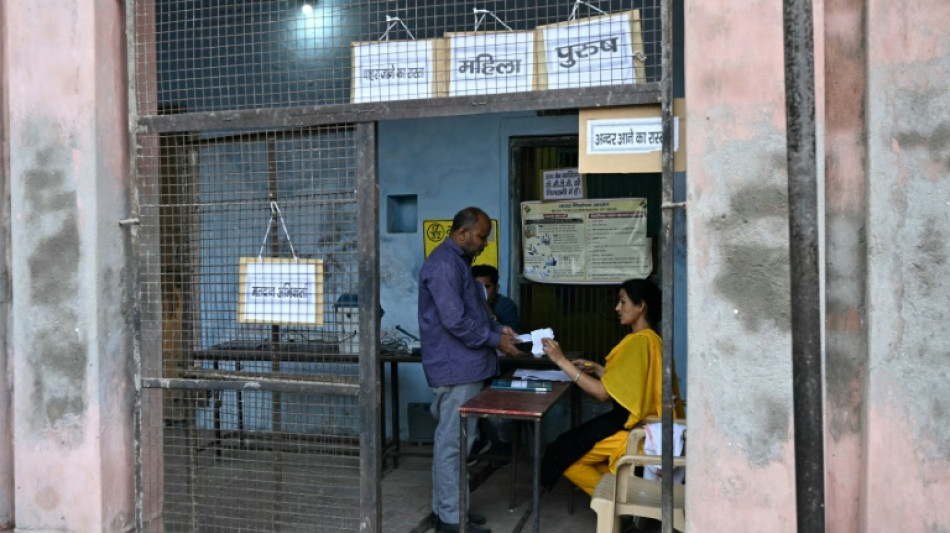Indian election resumes as heatwave hits voters / Photo: Money SHARMA - AFP
India's six-week election juggernaut resumed on Friday with millions of people expected to line up outside polling stations in parts of the country hit by a scorching heatwave.
Prime Minister Narendra Modi is widely expected to win a third term in the election, which concludes in early June.
But turnout in the first round of voting last week dropped nearly four points to 66 percent from the last election in 2019, with speculation in Indian media outlets that higher-than-average temperatures were to blame.
The second round of the poll -- conducted in phases to ease the immense logistical burden of staging an election in the world's most populous country -- includes districts that have this week seen temperatures above 40 degrees Celsius (104 degrees Fahrenheit).
India's weather bureau said Thursday that severe heatwave conditions would continue in several states through the weekend.
That includes parts of the eastern state of Bihar, where five districts will vote on Friday and where temperatures more than 5.1 degrees Celsius above the seasonal average were recorded this week.
Karnataka state in the south and parts of Uttar Pradesh, India's most populous state and heartland of the Hindu faith, are also scheduled to vote while facing heatwave conditions.
Earlier this week, India's election commission said it had formed a task force to review the impact of heatwaves and humidity before each round of voting.
The Hindu newspaper suggested the decision could have been taken out of concerns that the intense heat "might have resulted in a dip in voter turnout".
In a Monday statement, the commission said it had "no major concern" about the impact of hot temperatures on Friday's vote.
But it added that it had been closely monitoring weather reports and would ensure "the comfort and well-being of voters along with polling personnel".
A wave of exceptionally hot weather has blasted South and Southeast Asia, prompting thousands of schools across the Philippines and Bangladesh to suspend in-person classes.
The heat disrupted campaigning in India on Wednesday when roads minister Nitin Gadkari fainted at a rally for Modi in Maharashtra state.
Footage of the speech showed Gadkari falling unconscious and being carried off the stage by handlers. He later blamed the incident on discomfort "due to the heat".
Years of scientific research have found climate change is causing heatwaves to become longer, more frequent and more intense.
G.Radhakrishnan--BD
